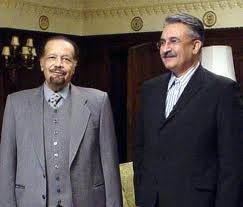A Quote by Andrew Gould
The national oil companies still want to acquire some expertise so they will outsource more, but not totally.
Related Quotes
Some years ago one oil company bought a fertilizer company, and every other major oil company practically ran out and bought a fertilizer company. And there was no more damned reason for all these oil companies to buy fertilizer companies, but they didn't know exactly what to do, and if Exxon was doing it, it was good enough for Mobil and vice versa.
The climate, financial and national security crises are all connected. They share the same cause: Our [the USA's] absurd dependency on foreign oil. As long as we need to spend billions of dollars each year to buy foreign oil from state-run oil companies in the Persian Gulf, our problems of a trade deficit, a budget deficit and a climate crisis will persist.
Companies that acquire startups for their intellectual property, teams, or product lines are acquiring startups that are searching for a business model. If they acquire later stage companies who already have users/customers and/or a predictable revenue stream, they are acquiring companies that are executing.
This morning, prompted by increasing concerns about terrorism, oil prices reached a record high as the cost of a barrel of crude is a whopping $44.34. Wow, it seems shocking that a product of finite supply gets more expensive the more we use it. Now the terror alert means higher oil prices, which oddly enough means higher profits for oil companies giving them more money to give to politicians whose policies may favor the oil companies such as raising the terror alert level. As Simba once told us: "It's the circle of life."
Oil remains fundamentally a government business. While many regions of the world offer great oil opportunities, the Middle East with two-thirds of the world's oil and the lowest cost, is still where the prize ultimately lies, even though companies are anxious for greater access there, progress continues to be slow.
We had the hardware expertise, the industrial design expertise and the software expertise, including iTunes. One of the biggest insights we have was that we decided not to try to manage your music library on the iPod, but to manage it in iTunes. Other companies tried to do everything on the device itself and made it so complicated that it was useless.
We've got a portfolio of companies that range all the way from hotels to television stations and cable TV companies, oil and gas, consumer products, and industrial products. If there's anything that I want to know more about, I have the opportunity. It's right in our portfolio. I can spend time at the factory or with the manangement and learn as much as I want. You can't get bored doing that.
Britain has squandered its windfall of natural resources from North Sea oil and gas. Instead of prudently investing the 'unearned income' from nature, to build a safe, clean and green energy supply for the nation, we face unnecessary shortages. But there is still a chance to put the proceeds from liquidating our fossil fuel assets to better and more appropriate use. Instead of oil companies profiteering from climate change and oil depletion, a windfall tax could establish an Oil Legacy Fund to pay for Britain's urgent transition to a sustainable, decentralised energy system
I can at once refute the statement that the people of the West object to conservation of oil resources. They know that there is a limit to oil supplies and that the time will come when they and the Nation will need this oil much more than it is needed now. There are no half measures in conservation of oil.
Americans once believed that their prosperity and way of life depended on having assured access to Persian Gulf oil. Today, that is no longer the case. The United States is once more an oil exporter. Available and accessible reserves of oil and natural gas in North America are far greater than was once believed. Yet the assumption that the Persian Gulf still qualifies as crucial to American national security persists in Washington. Why?
The oil companies are really making a very lucrative amount of profit from the high price of oil. I don't that they're very keen to reduce the price of oil. The consumers are those who are the victims so I think that the producers, the governments, some of them, they're enjoying the high revenue that they get.
































